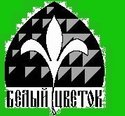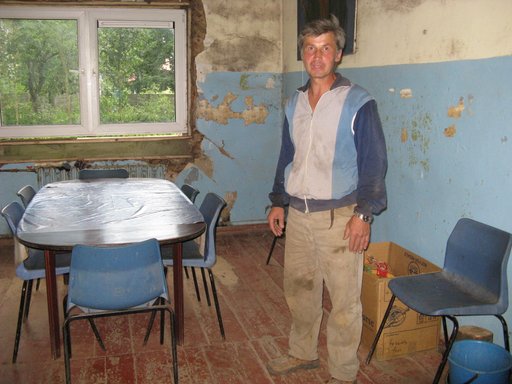The Belarus Fund (Reg. Ch. 1116762)
and White Flower in Belarus
Supporting the people of Belarus affected by Chernobyl
Marina Gorka Rehabilitation Project
The Marina Gorka Rehab project is one of the many projects The Belarus Fund support.
Marina Gorka is a small town about an hour and a half drive East of Minsk, the capital of Belarus.
In a village outside Marina Gorka, our friends Artem (Belarusian) and Rachel (English) attend a church with their 3 children. The church is very community minded and wanted to do something to help local people dealing with addictions.
The church approached the authorities about using an abandoned, almost derelict small cottage hospital. The site was really in a very poor state, but they saw this as a challenge, and a group from the church, along with people who needed rehabilitation, set about making part of the building habitable.
The whole project is supported and co-ordinated by the church.
The residents are recovering alcoholics and drug addicts. The remote location keeps them from temptation and their time is taken up with renovating the building they live in.
Much of the early work was done by recycling materials from the worst part of the building and using them to patch up and make good the least derelict parts. They also received small donations from charities and friends in Belarus and the UK. One couple came out with paints and helped paint the renovated rooms.
The Belarus Fund donated money to pay for fire and safety equipment so that the habitable part would meet fire regulations. This was necessary so people could live there.
A member of the church was appointed to oversee the centre and co-ordinate the work there, as church members had their own jobs and only had spare time available.
As well as inside work, they have some grounds which they want to cultivate for food. As well as land, they built a basic greenhouse using recycled wood and polythene. They also have 4 pigs.
The rehabilitation centre work is making progress but not at a rapid pace. The renovations need to move forward at a pace dictated by the skills of those living there and the availability of resources.
The Belarus Fund has provided money to buy materials which cannot be obtained through recycling.
The last time we visited, we talked about the rehabilitation centre plans. Two more rooms had been completed, heating was working throughout the whole building and they also provided temporary care for 4 vulnerable elderly people, who have now moved to social services. There are 8 people living at the rehab centre now. We were able to leave a small donation for the continuing refurbishment of the building.
You might find yourself reading this asking; What is the problem?
In Belarus there are problems with alcohol and drug abuse. With the collapse of communism came unemployment which was unheard of before. Everyone used to have a job.
The economy struggles because of the long term effects of Chernobyl. It is going to take many years, possibly several generations, to overcome these devastating effects and build a positive, sustainable future.
Alcohol is cheap and “home” brewing/distilling is common. While alcohol numbs the “pain”, it brings its own problems; unemployability, abuse, sickness, imprisonment and death. Consequently, there are high numbers of people in need of detoxification and rehabilitation. This centre is breaking down barriers and working hard to give these people the resources they need in order to get back to good health, get a job once again, and live a full and great life.
We have been making small donations to the centre throughout it's journey and as well as doing their own repair and maintenance work, the residents are producing craft work that can be sold to raise money for the Centre. This has the potential to boost funds and create a regular stream of cash to enable to centre to, one day, sustain itself.
The craft work needs certain equipment to help improve quality and efficiency. Nicolai, our charity co-worker in Belarus, talked with Artem, who said that they dream about:
- Shifting gauge / thicknessing machine – it costs $400 – 500
- Grinder with adjustable turns / rotation – it costs $100 approx.
- Jointer-plane / smoothing plane – it costs $200 – 500
With regard to prices, Belarus has a high rate of inflation (some food items can double in cost overnight) and so the cost of equipment is likely to increase.
We feel that this is:
* A worthwhile project
* It teaches useful skills
* Improves people skills
* It puts people more in control of their own lives and gives them responsibility
* Gives the centre the potential to become a sustainable accessible provision
If you would like to support this project please feel free to email and we can provide you with further information about what is needed
One of the current residents working hard to get the centre refurbished
For more photo's visit the gallery
Registered Charity No: 1116762
Copyright © All Rights Reserved





